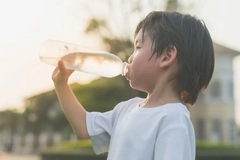
- Industry news
Industry news
- Category news
- Reports
- Key trends
- Multimedia
Multimedia
- Journal
- Events
- Suppliers
Suppliers
- Home
- Industry news
Industry news
- Category news
- Reports
- Key trends
- Multimedia
Multimedia
- Events
- Suppliers
Suppliers
South Korea mandates recycled plastic use in beverage bottles from 2026
Key takeaways
- Starting in 2026, South Korea will require bottled water and non-alcoholic beverage producers using over 5,000 tons of PET annually to include at least 10% recycled plastic in their bottles.
- The government plans to raise the recycled content requirement to 30% by 2030 and expand the regulation to producers using more than 1,000 tons of PET bottles per year.
- The Ministry of Climate, Energy and Environment will establish a plastic-free circular economy roadmap, certify PET recycling processes to ensure quality, and extend recycled material targets.

The South Korean government announced requirements for bottled water and non-alcoholic beverage producers to integrate recycled plastic in packaging from 2026.
Under the revised Enforcement Decree of the Resource Recycling Act, at least 10% of the PET used in bottles must come from recycled sources. The regulation applies to beverage producers that use more than 5,000 tons of PET bottles annually.
The Ministry of Climate, Energy and Environment states: “Through a public deliberation process, a national roadmap for a plastic-free circular economy will be established within this year. Circular resource use will be enhanced by introducing sustainable product design.”
“There are plans to gradually increase the target rate for the use of recycled raw materials to 30% by 2030, while expanding the obligated users to include those who produce more than 1,000 tons of final products annually.”

Promoting recycled material
The ministry also revised the “Recycling Guidelines for Designated Recycling Businesses” to increase the target rate for the obligation of raw material producers to use recycled materials from the existing 3% to 10%.
In the future, the ministry plans to identify more products, such as cosmetic containers, that can incorporate recycled raw materials and set usage targets to further expand the use of recycled plastics.
To reduce the presence of non-intentionally added substances, the ministry notes that it will certify the PET collection, sorting, and recycling processes. Only certified recycled materials will be permitted for use in colorless PET bottles.
Earlier this year, South Korea’s neighboring country, Japan established the certification of excellent environmental design for beverage PET bottles under the Plastic Resource Recycling Promotion Act. The system is a voluntary certification methods based primarily on incentives.
Starting in January 2026, manufacturers of colorless PET beverage bottles in Japan may apply for certification if they meet the requirements. To qualify, at least 15% of the bottle’s total weight must consist of recycled and biomass plastics. In addition, the bottle body must be made entirely of PET, while caps and labels must be free of PVC, and labels must be designed for easy removal during the recycling process.











